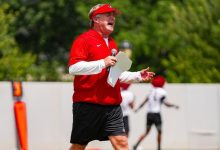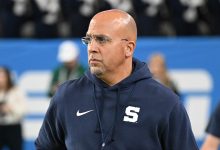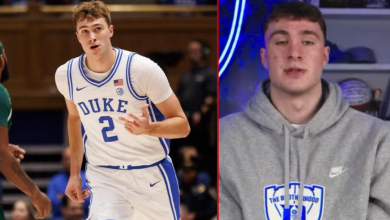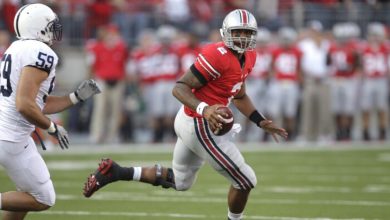Nico Iamaleava abandoned the Tennessee Volunteers, fled to the UCLA Bruins for financial gain, and left them injured.
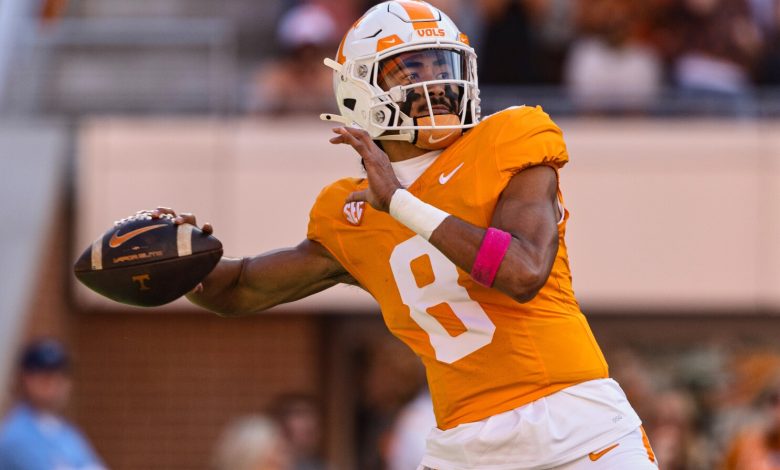
In a surprising and controversial move that shook the college football world, Nico Iamaleava, once a highly touted quarterback prospect for the Tennessee Volunteers, made headlines by transferring to the UCLA Bruins. The transfer has been widely discussed, especially because of the financial implications surrounding his departure and the impact it left on Tennessee’s football program. This article dives into the story behind Iamaleava’s decision, the role of NIL (Name, Image, and Likeness) compensation in his transfer, and the ripple effects it caused on both Tennessee and UCLA football teams.
The Early Promise: Nico Iamaleava at Tennessee
Nico Iamaleava entered college football with sky-high expectations. A five-star recruit out of Warren High School in California, he was ranked among the nation’s top quarterbacks in the 2023 recruiting class. His talent and leadership potential made him a centerpiece for Tennessee’s future, especially under the guidance of then-head coach Josh Heupel.
During his freshman season at Tennessee, Iamaleava showed glimpses of brilliance. His arm strength, field vision, and athleticism quickly made him a fan favorite. With over 2,600 passing yards and multiple touchdowns, he led the Volunteers to a solid 10-3 season and a bowl appearance, giving Tennessee fans hope that their quarterback woes were coming to an end.
NIL Deals and the Financial Side of College Football
The rise of NIL deals changed the landscape of college athletics. For the first time, student-athletes could legally earn money by leveraging their personal brand. Iamaleava was among the top college players to capitalize on this new reality, reportedly signing a lucrative four-year NIL contract valued at approximately $8 million.
However, the NIL environment also brought complications. Contracts vary widely, negotiations can be intense, and the deals are often renegotiated based on a player’s performance and market value. Iamaleava’s initial deal reportedly paid him around $2.4 million annually, but as his stock rose, he sought to renegotiate for a higher figure, requesting nearly $4 million per year.
The Breakdown: Tennessee and Iamaleava’s NIL Dispute
Tennessee’s reluctance to meet Iamaleava’s new demands triggered tensions. The Volunteers’ administration and coaching staff reportedly viewed the $4 million request as excessive and not aligned with their internal standards. Negotiations reached an impasse, with the Volunteers unwilling to budge and Iamaleava seeking financial security in a market increasingly driven by NIL earnings.
Feeling undervalued, Iamaleava made the dramatic decision to enter the transfer portal and ultimately committed to UCLA. Reports indicate that his UCLA deal, while substantial, pays him less annually—around $1.5 million—but the move also offered him other incentives such as a better geographic fit closer to home and a fresh start in a Pac-12 program rebuilding its offensive identity.
Fallout and Injuries: The Impact on Tennessee’s Team
Iamaleava’s departure left Tennessee scrambling to fill the void at quarterback. The sudden loss of their star signal-caller disrupted offensive continuity and raised questions about the stability of the program. The Volunteers, known for their passionate fan base and competitive SEC schedule, had to pivot quickly to find a capable replacement.
Adding to the challenge, injuries plagued Tennessee’s backup quarterbacks during the transition period, intensifying pressure on the coaching staff and players. The Volunteers had to rely on less experienced players to step into the starting role, leading to inconsistent offensive performances.
The UCLA Bruins: A New Chapter for Iamaleava
For UCLA, landing a quarterback of Iamaleava’s caliber was a coup. The Bruins, under new leadership and striving to regain Pac-12 prominence, viewed him as the key to revitalizing their offense. His presence energized the fan base and gave the coaching staff hope for a more dynamic passing attack.
While the financial terms of Iamaleava’s UCLA deal were reportedly less than what he sought at Tennessee, other factors such as proximity to family, a familiar West Coast environment, and a promising offensive scheme influenced his decision. UCLA also promised significant playing time and a starring role, critical for his ambitions to reach the NFL.
Broader Implications: NIL’s Role in College Football
Iamaleava’s transfer underscores the growing influence of NIL deals on college athlete decisions. While NIL offers tremendous earning opportunities, it also introduces new complexities regarding loyalty, team chemistry, and program stability.
Critics argue that escalating NIL demands risk prioritizing financial gain over athletic and educational commitments. Supporters claim athletes deserve compensation reflective of their contributions and marketability. Iamaleava’s case highlights the fine balance schools must navigate to attract and retain top talent amid evolving NIL landscapes.
Reactions from Coaches and Analysts
The transfer sparked varied reactions. Tennessee’s head coach expressed disappointment over losing a key player but acknowledged the realities of NIL-driven recruiting. UCLA’s coaching staff celebrated the acquisition, emphasizing their commitment to supporting Iamaleava both on and off the field.
NFL analysts weighed in, noting the increased frequency of such transfers as athletes seek both competitive and financial advantages. Some raised concerns about potential distractions caused by NIL negotiations but agreed that player empowerment is a natural progression in modern college sports.
Lessons for Tennessee and UCLA Moving Forward
For Tennessee, the Iamaleava episode is a wake-up call. The Volunteers must adapt their recruiting and retention strategies to remain competitive, balancing NIL demands with program values. Investing in player relationships and transparent NIL frameworks could help mitigate future conflicts.
UCLA, meanwhile, faces the challenge of integrating Iamaleava into their system and maximizing his talents. Ensuring a supportive environment and managing expectations will be key to turning this high-profile acquisition into on-field success.
Nico Iamaleava’s transfer from Tennessee to UCLA amid NIL disputes and team challenges marks a defining moment in college football’s evolving landscape. His journey highlights the complex interplay between athletic aspirations, financial considerations, and program dynamics.
As NIL continues to reshape college athletics, players like Iamaleava are at the forefront of change, navigating opportunities and obstacles that were unimaginable just a few years ago. For fans and programs alike, understanding these shifts is essential as college football enters a new era of player empowerment and competitive balance.

